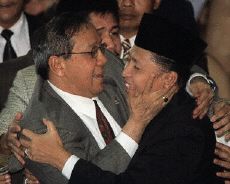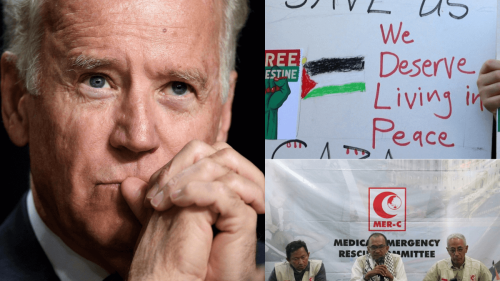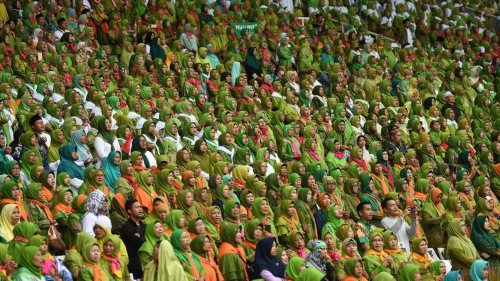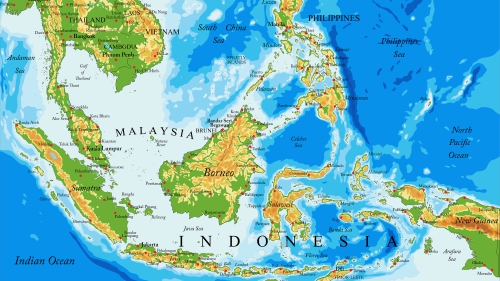Indonesia's Hamzah Haz, A Seasoned Politician Who Shuns Publicity

Akbar Tanjung (L), the loser of the closely-fought race for the country's second highest post of vice president, hugs Indonesia's new vice president, veteran politician Hamzah Haz (R), age 61, in parliament in Jakarta, 26 July 2001. |
Hamzah Haz, who became Indonesia's ninth vice president on Thursday, is a seasoned lawmaker and politician and the first in more than three decades to come from a Muslim party.
The 61-year-old vice president is chairman of Indonesia's largest Muslim party and the third largest party in the country, the United Development Party (PPP), which he has headed since 1998.
Despite being the world's largest Muslim-populated nation, Indonesia has since the fall of founding president Sukarno in the 1960s, never had a vice president from a Muslim party.
Haz, who is known to be self-effacing and shuns publicity, has said his appointment to the vice presidency was necessary since the Muslim political forces he represents would complement the nationalist forces represented by President Megawati Sukarnoputri's Indonesian Democracy Party for Struggle (PDIP).
An active group organizer since his high school days in his native province of West Kalimantan on Borneo, Haz has however been untested in his administrative skills, and spent a large part of his adult life as a lawmaker.
He studied economy but did not obtain a decree from the state university he attended in Pontianak, the capital of West Kalimantan.
But he holds a bachelors degree in cooperative sciences from a state academy in Yogyakarta, Central Java, where he enrolled together with his copra farmer father.
Haz started his career in the provincial parliament in West Kalimantan in 1968, and after moving to the capital, became an MP in 1971.
He first represented the Muslim Nahdlatul Ulama (NU) group and then the PPP following its creation through a merger of Muslim parties in 1973.
He served as minister for investment under former president B.J. Habibie, who replaced strongman Suharto when he stepped down in 1998, but had to resign to lead the PPP in the 1999 elections.
Ousted president Abdurrahman Wahid appointed him as coordinating minister for people's welfare, but he resigned after two months saying he wanted to concentrate on his party.
Sources at the palace said Wahid had accused him of graft, collusion and nepotism.
Haz then became a vocal Wahid opponent, but his background in the NU which Wahid led for 15 years until he was elected president in 1999, has made him amenable to compromise.
He was among the political party leaders who attempted to broker a last minute compromise between the embattled Wahid and the hostile parliament.
On Thursday, the first visit he made after his election, was to the presidential palace, to bid Wahid farewell who was ousted on Monday by the national assembly and replaced by Megawati.
______________________________________________
AFP contributed to this report.

















